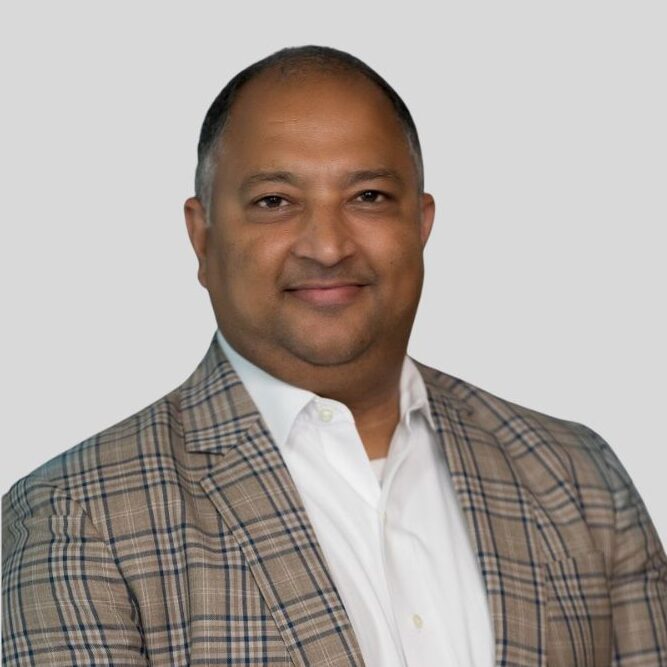Rupesh Nigam, MD, MBA, FACP joined InnovaCare Health as Chief Medical Officer in March 2023. As a regional leader in integrated and value-based healthcare services, InnovaCare Health is transforming care delivery by combining physician-led care models with cutting edge technology and a focus on personalized, culturally competent care. Through this model, providers are empowered to succeed and thrive in some of healthcare’s most challenging environments.
Dr. Nigam is an experienced physician executive with extensive value-based care background and hands-on clinical and research experience spanning 25+ years. After obtaining his medical degree from the Armed Forces Medical College in Pune, India, Dr. Nigam served as a molecular biology clinical researcher at Baylor College of Medicine and MD Anderson Cancer Center before completing his residency training at University of Texas Health Sciences Center in 2011.
Following his research experience, Dr. Nigam began as a hospital-based internal medicine hospitalist for the prestigious Kelsey-Seybold Clinic, an 800-provider, multispecialty group practice with over 40 clinic locations providing value-based care to patients in the greater Houston area.
Following 4½ years in the hospitalist role, he was appointed Medical Director, Hospital Services at Kelsey-Seybold in 2016. As Medical Director, he maintained communications and liaison with the C-suites of four major hospital systems encompassing 22 major Houston-area hospitals relative to management of the care of Kelsey-Seybold patients admitted to these hospitals.
Demonstrating his abilities as a thought leader and innovator of processes, particularly in the area of service line development, Dr. Nigam expanded the Medical Director role beyond Hospital Services to include Palliative Care, Population Health, and Behavioral Health service lines. Dr. Nigam has continued to demonstrate business acumen, strategic planning ability, and subject-matter-expert understanding of value-based care delivery to develop programs that fill care-need gaps in the community while producing savings for the health plan.
Share Article


